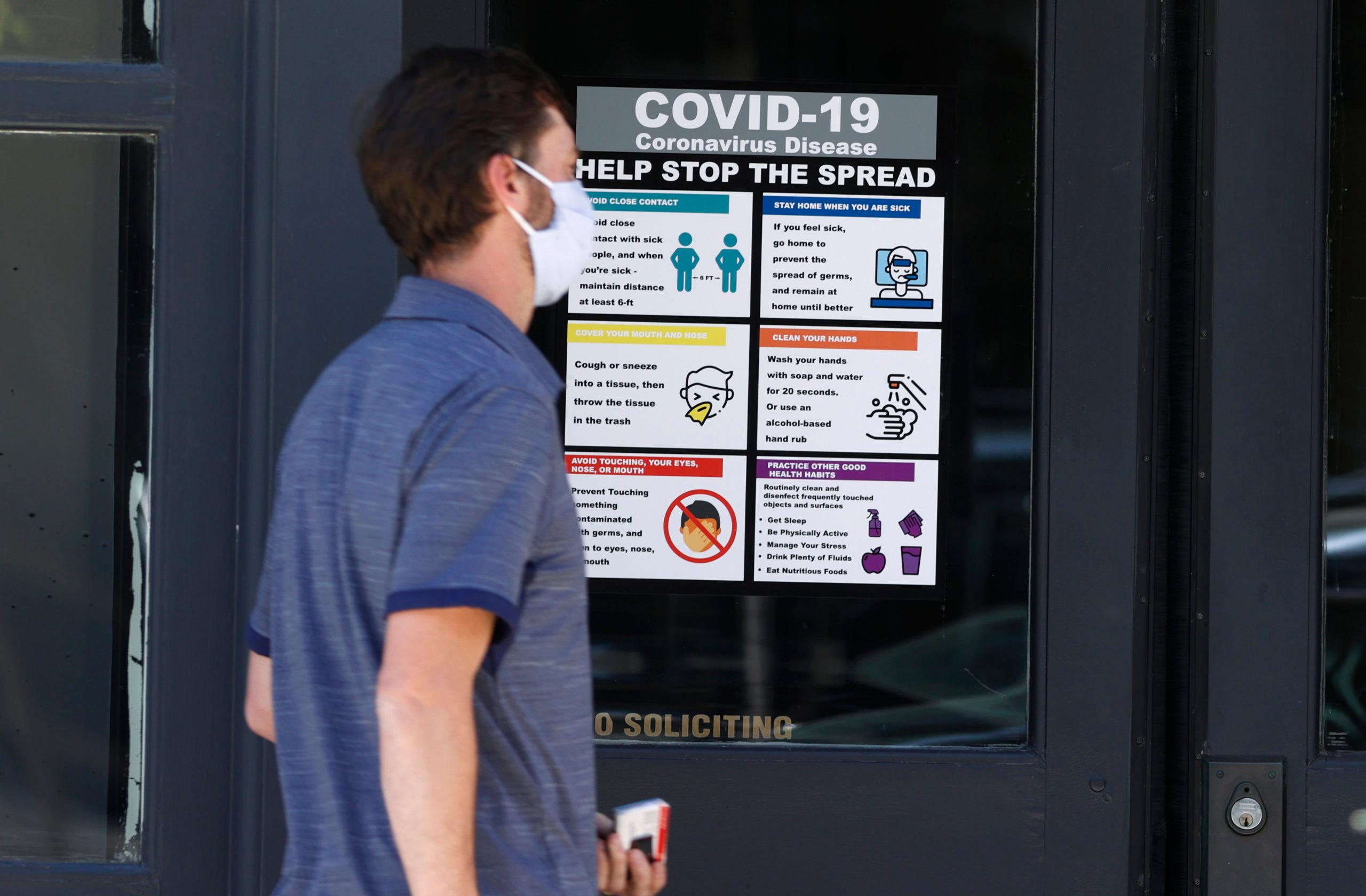
When Gov. Jared Polis ordered Coloradans statewide to wear masks on Thursday afternoon, the push-back from some elected officials was swift, including at least one commissioner who doesn’t want conservative Weld County to enforce the mandate.
“Philosophically, it’s something that’s off limits to me,” said Weld County Commissioner Scott James, referring to mask mandates.
“If indeed it is ‘my body, my choice’ in a nation that celebrates liberty and freedom above all else, we must respect that,” he said. “We can inform someone, we can educate as much as we possibly can, but if that person does not choose to put on their mask, we must celebrate that choice.”
U.S. and global health authorities have encouraged mask-wearing as an effective way to slow the spread of the virus in outbreak areas. James said that he would personally comply, but doesn’t want to see the government intervene.
Weld County sheriff’s deputies will ask people to wear masks, according to spokesperson Joe Moylan, but will rarely do more.
“We’re going to be encouraging voluntary compliance. If we’re out and about and see people without masks on, we're going to encourage people to put masks on. And that’s it. We’re not going to be actively policing this in terms of assigning people to mask patrols,” Moylan said. “We really don’t have the resources to just be driving around making sure that people have their masks on ... It’s absolutely not a political decision. It’s just a matter of resources.”
However, people who continually flout the law could be referred to the health department and sent a summons, Moylan added.
Ultimately, that may not be much different from the light-touch approach that Polis and other elected officials have encouraged.
In Denver, which was under a local mask order before the new-state mandate, city employees have encouraged residents to maintain distance or wear masks, but citations have been relatively rare. The city has issued about 12,000 warnings under the Safer at Home orders, including 680 related to masks — but it has only cited a single person and three businesses in the current phase.
James, the Weld County commissioner, said that while he disagreed with Polis’ order, he believed the governor had the authority to issue it. But that view is far from universal among other Republican politicians.
House Minority Leader Patrick Neville tweeted that Polis was “on a power trip,” and said he had hired attorneys with “the intent to sue” for an alleged violation of civil liberties, though he didn’t give any further details about the potential lawsuit.
In a separate written statement that didn’t mention legal action, Neville asserted that the order is unnecessary because Colorado’s COVID-19 infections, hospitalizations and deaths are still lower than their April peak.
However, public health officials have warned in recent days that there are clear signs of a resurgence. New infections have climbed steadily for the last month. Similarly, while the number of hospitalized people is far below the April peak of nearly 900, it's grown from a low of about 130 to about 260 today. Deaths have not shown a clear trend upward, though they tend to lag new cases.
Neville contended that Polis was “letting the mob rule Colorado’s policies.”
Polis initially held back from a statewide order, saying last week it would be difficult to enforce. Instead, he leaned on local leaders to take action. Large cities like Denver issued their own orders, covering more than half the city’s population.
But some smaller governments recently moved in the opposite direction. The cities of Brighton, Castle Rock and Bennett all released statements that they would opt out of a mask mandate issued by the local public health department.
The governor’s change of course came after criticism from public health officials and others. Polis said that he changed his mind after seeing that orders in other states — including from conservative governors like Greg Abbott of Texas — resulted in higher rates of mask use.
The Centers for Disease Control has called on Americans to wear cloth face masks to slow the spread of COVID-19. The CDC recently cited a case in which cloth face coverings may have prevented the spread of coronavirus at a hair salon. The World Health Organization also updated its guidance in June, saying people should wear non-medical masks “where there is widespread transmission and when physical distancing is difficult.”
On Thursday, Polis said that the order was meant to establish a uniform state policy and set expectations for the public — not to punish scofflaws. The state itself has little direct policing power. And it’s unlikely that the state will try to force cities and counties to issue citations or take other actions, said Kevin Bommer, executive director of the Colorado Municipal League.
“I don’t think there’s any expectation that, now that there’s a state order, that the state expects municipalities and counties to go out and enforce it," he said. "What it does — if a municipality or county chooses, particularly if they don’t already have their own order, it puts a tool in the toolbox."
Public support for mask orders also appears to be fairly strong, with a Fairleigh Dickinson University poll last month finding 79 percent of Americans supporting mask orders in enclosed public spaces.









